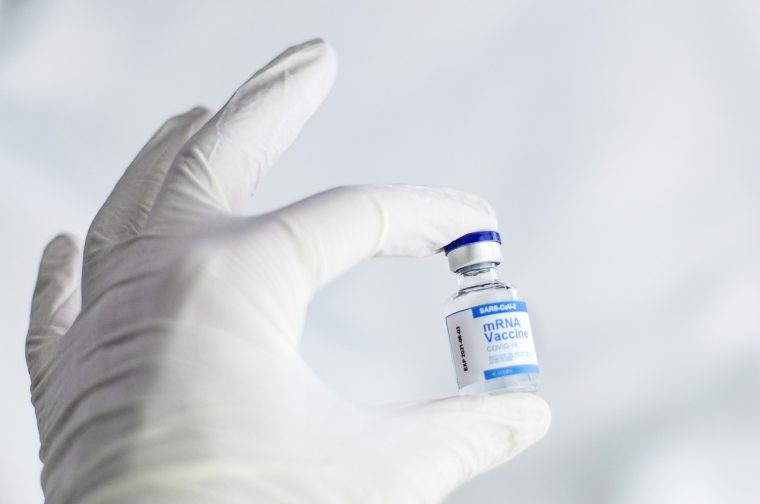
The US Food and Drug Administration has announced that it is revoking authorization for the Johnson & Johnson Covid-19 vaccine following a request for withdrawal from the company’s Janssen unit.
This decision comes after Janssen informed the FDA that shots bought by the government had expired and there was no demand for the product in the US, according to a letter by the FDA’s top vaccine regulator Peter Marks.
“FDA has determined that it is appropriate to protect the public health or safety to revoke this authorization,” Marks wrote in the letter, adding that the company “does not intend to update the strain composition of this vaccine to address emerging variants.”
Furthermore, demand has remained subdued in comparison to more popular shots from Moderna and Pfizer-BioNTech.
According to CDC data tracking, about 31.5 million J&J vaccine doses had been delivered to states amid the pandemic, but only around 19 million were administered, leaving the remaining 12.5 million or so to expire.
Remember the J&J covid shot? One of three that people were forced to take under pain of losing their job? Well, the FDA quietly removed its authorization. pic.twitter.com/LhjtV6nz5j
— Aaron Kheriaty, MD (@akheriaty) June 4, 2023
J&J Covid Vaccine Had a Rocky Start Due to Safety Concerns
J&J’s single-dose vaccine had a troubled start after manufacturing issues where millions of doses were contaminated and had to be discarded.
In 2021 it was linked to cases of an extremely rare and potentially deadly clotting disorder called thrombosis with thrombocytopenia syndrome (TTS).
It’s important to note that all vaccines (and medicines in general) cause side effects in some people, many of which are extraordinarily rare. It seems like only about 60 cases of TTS out of the 19 million people who took the vaccine were reported. Unfortunately, because this complication is so dangerous, 9 of these 60 cases were fatal.
Compared to other common medication like oral birth control pills, this is a rare side effect. About 1 in 3,000 women taking oral birth control pills develop blood clots compared to the roughly 1 in 315,000 that suffer from TTS from the J&J vaccine.
At the time, the FDA and CDC temporarily suspended the use of the vaccine due to safety concerns over fear of the clotting issue despite the extreme rarity of the side effect because the mRNA vaccines seemed to be safer.
This concern was first noticed with a similar vaccine made by AstraZeneca, which also used an adenovirus vector-based design.
Although the AstraZeneca vaccine was never authorized for use in the US, the pause on J&J’s vaccine lasted just 11 days. However, it had a significant impact on the public’s trust as demand for the vaccine drastically declined and never fully recovered.
In another blow to the J&J vaccine, the CDC downgraded it in December of 2021, suggesting that mRNA-based vaccines should be the preferred vaccines against Covid-19.
This downgrade was due to the growing evidence that mRNA vaccines provided stronger protection against the evolving Covid-19 variants.
In May of 2022, the FDA further limited the use of the J&J vaccine to individuals aged 18 and older who were unwilling or unable to receive an alternative vaccine.
They didn’t BAN the J&J vaccine
FDA limited it to 18+
— when mRNA COVID vaccines are not accessible or clinically appropriate
— who elect to receive J&J because they would otherwise not receive ANY other COVID vaccine (i.e. people who hate mRNA)https://t.co/NV3X9AePzD— Kaitie Q., MSN, RN, MPH, ACNP (@ImKatieRN) June 25, 2022
Although J&J’s vaccine faced these early problems, the decision to revoke the authorization should not affect those who have already received the vaccine as part of their Covid vaccine regimen.
“Since the reason for the withdrawal does not have to do with the effectiveness of the vaccine, I would not expect it to change whether the vaccine counts for someone’s protection,” Joshua Sharfstein, the dean for public health practice and community engagement at Johns Hopkins Bloomberg School of Public Health, told Boomberg.
FDA to Discuss New Formulations of COVID-19 Vaccines
The end of J&J’s vaccine comes only a few weeks before the FDA plans to discuss new formulations of Covid-19 vaccines for the upcoming fall.
The FDA has long discussed updating Covid vaccines, much like annual flu shots that prompt manufacturers to have updated formulas ready for rollout in the fall.
The FDA’s vaccine advisory committee will meet on June 15 to discuss the best formula for this fall.
The World Health Organization’s vaccine advisory committee has already suggested that countries switch from current bivalent formulas, which target both the ancestral SARS-CoV-2 virus and an omicron subvariant, as it may not provide adequate protection against current strains.
The advisors recommended countries to switch to monovalent vaccines that are designed to target the XBB lineage, the latest omicron sublineage that is dominating transmission.
Read More:
- Best Biotech Stocks to Watch in 2023
- How to Buy Pfizer Stock in 2023
- Best Tech Stocks to Buy in June 2023
What's the Best Crypto to Buy Now?
- B2C Listed the Top Rated Cryptocurrencies for 2023
- Get Early Access to Presales & Private Sales
- KYC Verified & Audited, Public Teams
- Most Voted for Tokens on CoinSniper
- Upcoming Listings on Exchanges, NFT Drops